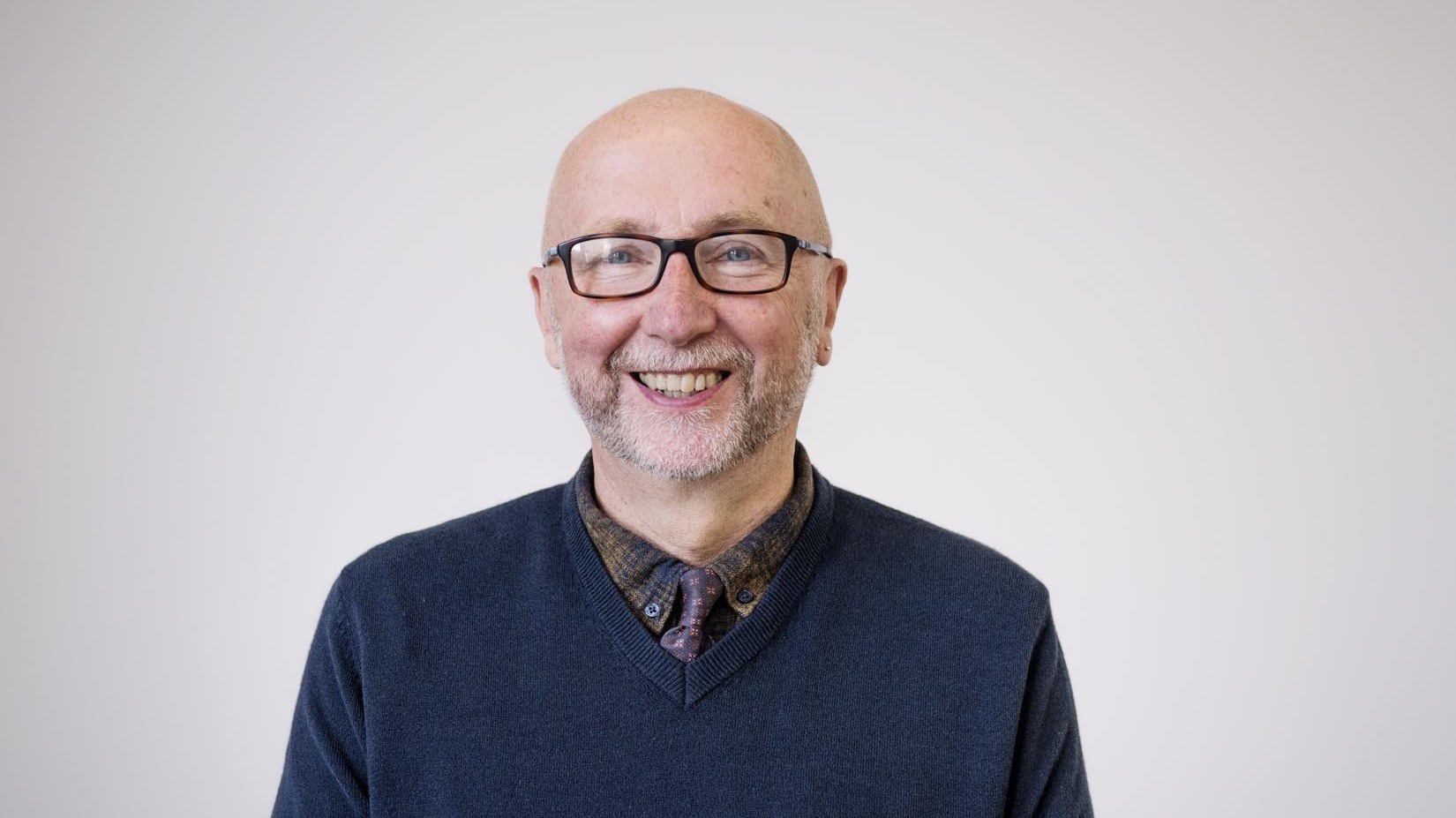Communications Transformation with Gideon Fireman
Posted on 2nd December 2022 at 09:26
In this episode, we're joined by our colleague, Gideon Fireman who's a freelance copywriter, former journalist and seasoned communications manager. With an insight into Gideon's career to date, Zach and Gideon consider the ever-changing world of communications and storytelling – relating to reporting, public relations and reputation management.
Zach Greaves 00:02
Welcome to Words that Work. My name is Zach Greaves, Founder and Director of Artus Digital Marketing. We're here to empower businesses to tell their story through compelling copywriting and content. And today, I'm joined by Gideon Fireman. He's a freelance copywriter with us at Artus, and he's a former journalist and seasoned communications manager. So, very good to have you with us Gideon, and thank you for joining us today.
Gideon Fireman 00:32
It's a pleasure to be here, Zach, thank you for asking me on.
Zach Greaves 00:36
Great to have you with us Gideon. Thank you. So, Gideon, really a seasoned veteran of the communications world. Don't worry, I won't push that too much, I'm only pulling your leg. But please, you know, you've been working with us for a couple of years now Gideon, probably knocking on, we’ve known each other three years probably but yeah, just give us a bit of an insight into your career and where it all started for you in the world of communications.
Gideon Fireman 01:18
Well, it's funny you should mention the word dinosaur.
Zach Greaves 01:22
I never said dinosaur. I never used that word.
Gideon Fireman 01:28
No, you didn't. I've been around for quite a while. I started off and I got my got my first byline, I got my first named article in there used to be free newspapers for Australians and New Zealanders who travelled in London. And I wrote some articles and got a byline because I travelled a bit as well. And that worked and that got me into a magazine publisher who ran a three-year kind of indentured training course. So, I worked on their magazines, and I learned how to write news, how to write features, how to write headlines, how to layout pages, I learned shorthand. And I did this for three years while working on their magazines as well.
Then I took a year off went to the States, because I it was somewhere that I'd wanted to go I'd never been to before. And I wrote some articles while I was out there, I just basically trod the streets of New York and Chicago, just looking for stories. And I actually wrote one about the strike of the newspaper in Chicago. And I came across it because I was walking down the street and there was a picket outside the office. So, I just kind of thought, well, you know, that's interesting. And it was published in The Guardian. So that was quite a big start for me, a byline in The Guardian on the media page, about a strike and you could argue there's been all downhill since! So, then I became a radio news producer with LDC. I'd work for a news agency as a reporter, which covered the courts and events in London. This was in London. And I eventually ended up working for an American owned business newswire also in London, which mainly, although it covered the corporate world, it was mainly energy, oil and gas in particular, which in those days, and we're talking in the mid 90s. So, I got my first article published in 1984. So, in those days, it was I loved it, there was a huge kind of geopolitical element to the work, which is, as we can see, these days with gas supplies, and what's happened in Russia and Ukraine, and what's happened to energy prices. So, it wasn't just about how many barrels of oil were produced and everything. There was a huge geopolitical area to cover.
Zach Greaves 04:29
Yeah, angle to it.
Gideon Fireman 04:32
and I love that. So, I did that. And then just for family reasons, moved on and moved up north to be closer to family and moved into press office work, which is kind of the poacher turned game keeper or game keeper term for moving to the dark side as someone once told me a reporter told me and I worked in the press office for some household names in the energy, transport, retail business before eventually going in on my own. And this is where you find me now.
Zach Greaves 05:18
Absolutely. So, it's a quite a journey, an extensive and intertwining journey. And as you say, you know, two sides of the journalistic landscape, they're almost poles apart, really,
Gideon Fireman 05:35
They are poles apart but always, whichever side it was, there was always a story to tell. When you're a reporter, there's always a story to find. And when you're in public relations, or a press office, there's always a story to tell.
Zach Greaves 05:55
The distinction between the two is interesting.
Gideon Fireman 05:58
There is a distinction between the two. And also, for me, it was always the sense of I, you still have the news and the deadlines, and having deadlines and getting stories out. And it's amazing how quickly time passes when you focus on something and it was all about communication and getting the story out in an understandable way. You know, it's pointless telling a story if, if your audience doesn't get it. And that's an important message. And I think that's something that I think that's something that is, has never changed. Over the decades that I've been working. And even with the way that technology's gone in communications, and goodness me, it has moved on, I learned to write a story on a typewriter, and millions of people are now going, what's the typewriter? And you know, you adapt the technology. So here we are at Artus Digital, using all the modern social media mechanisms for communicating. But there's still a story to tell and that that's what we do.
Zach Greaves 07:19
Of course there is, and that's why we're both in work, isn't it, Gideon? I mean, we'll move on perhaps a little bit. I mean, we kind of alluded to it that where we are in the state of storytelling now. But we'll talk a little bit later on about how you've seen the world of copywriting and storytelling evolve in your career.
But for now, perhaps that's just, you know, we could touch on some of your career highlights, career successes and challenges, perhaps, but also, maybe speak a little bit about what you do for us and how that came about and how you are enjoying it, and how you apply your knowledge and experience to that. So, we've heard a couple of your major career highlights, I suppose already. But perhaps we could dig a little bit further into those. And at what point did you realise you wanted to go into communications? Was it at school?
Gideon Fireman 08:31
Yeah, interestingly, I'm thinking about this, and I've forgotten about it. Growing up, the radio was always on in the house. And my parents always watched the news. And it just seemed to be something that was on at the end of the day. So you kind of pick it up. My parents followed the news. They were politically aware. And obviously, that filled the news a lot. And so, I kind of had that background and I remembered at school, we had to produce a newspaper about the death of Elizabeth I. And I won a prize for my newspaper. I'd called it the Tudor Dispatch and so growing up I was always in that environment. There were options in those days to actually go and train to be a journalist. You could leave school with your O Levels and get a local job on the local paper still, as a copy boy, copy person, copy girl. And I didn't do that I went to college and did French and Politics.
I can remember someone asking me what I wanted to be and I said by then I'd like to be a journalist. But it wasn't a direct route, it was slightly roundabout way. And everybody gets a lucky break. And I had a mate who was in hospital radio. And someone who worked with him was actually the editor of a house magazine for a quite prestigious chain of hotels. And she wanted someone to write a piece about a trip. I can't remember where the place was, I think it was Bethlehem actually. And I've actually said, funnily enough I was there in the last year. And she said, well, you write it for me then. And that's all it took. And, you know, got a byline. And with that, I was able to, send that and some other stories off to the Australian, the free papers for travelers and got a collection of about three or four bylined articles.
And then I bumped into an old mate, who I've been at college with. And she said, I've heard about this guy at this publishing company and he’s really quite welcoming. And so, I sent off a little package of stuff to him, and he asked me in and got some summer work there. And then they actually offered me a full-time job on this course as a reporter. So, that's how you start, you know, it’s the classic thing of being in the right place at the right time. But you have to make it happen, you have to have to be in the right place at the right time.
So just saying, getting the article in The Guardian was quite amazing. So, I'd come back from the States, I’d just took a year out. And I also remember, came back to the airport, flew into Heathrow to see my dad waving a newspaper at me from the other side of the exit. And I kind of thought he's waving the jobs pages at me, you know, because I thought I'm back after dancing around in the States now. And it will drag on so whatever day the media jobs were in The Guardian, which is where I thought I could see it was The Guardian. I mean, I thought I was working two jobs out there, but he was actually waving the article. So that was great. Yeah, bless his cotton socks. I think in the end, because I was doing what I wanted to do, I think, you know, every day, pretty much was stressful and all that. But I think if you're in something that you're doing, and you're enjoying doing it, and you're competent at it, I think that's that makes every day a highlight, you know, and it wasn't i necessarily awards for things that came later, when I moved into PR I got I got awards for some projects I'd worked on with various companies, but at the time, it was just like being sent off somewhere to cover something. And you know, I've been to Brussels, and I've been to Copenhagen and Norway to cover conferences, oil and gas conferences, or politics or something like that when I work with this news wire. And I don't think you needed any more proof that you were in enjoying it, and you were lucky to do it and you're good at it, because we wouldn't send you otherwise. And so I think that time was a real highlight for me and I did get asked to go and report from New York but by that time I'd already like already planned to move up north so that was a bit that was a bit upsetting in many ways, but never mind.
Zach Greaves 14:39
Is that a regret?
Gideon Fireman 14:43
It’s not a regret. And I think that's a very good question. See in communications in what we do, we do it every day, we have an opportunity to achieve what we need to achieve, which is writing something that our clients like and think is good enough to put on their website. So that's the kind of, achievement if you take that as achievements, and you take that as the job satisfaction and the job well done, you've enjoyed doing it.
It becomes harder, I think, to have regrets. And I mean, reporting from New York, hello, who wouldn't want to do that? I don't really regret it. Because I think that I wouldn't let it. I don't think I would let it colour the rest of my career. So no, great question. But no.
Zach Greaves 15:58
Well, it’s these pivotal moments that ultimately define how the rest of your life pans out. And I can tell that you have had a very fulfilling and happy career. And, and ultimately, you’re satisfied with your lot now.
Gideon Fireman 16:16
Absolutely. Absolutely. And even, I did wonder about moving to the dark side and being in PR, because I think one of the things that made me a good reporter was that I could ask questions, and I could get people to, you know, I was nice. And people wanted to talk to me and tell me things, even hard-nosed businessmen, you get into conversation, and, and they would trust you with things. And, you know, if you said I wouldn't use you as a source, there was ways around it.
Yeah, I did wonder about moving into PR, because I think it pays to ask questions and it pays to be a little bit cynical. I was working for, you know, major energy companies, so there was a little bit of PR puffery in there, which I didn't feel comfortable doing. I got it. But I often and I think that's quite good up to a point. But I didn't like kind of what we used to call stunting up things. I understood why, but why you kind of create something. I'd much prefer to write what's there, write it as it is, right? What clients do, right, what clients want us to write? I find that quite comfortable doing it in that way. And
Zach Greaves 17:51
There’s a level of authenticity there, isn't there, despite the fact that we’re not the people, we are writing about it in an authentic way.
Gideon Fireman 18:01
Yeah. And I think that's part of the skill, not a false skill, it doesn't mean that we're all shallow. But part of being a communicator, writer, storyteller, is to learn and understand quickly what it is that you're telling the story about. And I think that we do that really well as a business, you know?
Zach Greaves 18:28
Absolutely. It's quite the opposite of being shallow, isn't it? You know, it's our job is to unpick and understand at a level that actually, in an ideal scenario, and I know we've done it in the past where a client says, you understand your my business better than I understand it.
Gideon Fireman 18:53
Absolutely. And it's our job to because you know, there were times, especially dealing with engineers, energy engineers, gas engineers, where they had a language of their own. And if they were talking to other gas engineers, then they would understand each other. But, you know, it was our job to take what they were saying, and make sure that other people who weren't gas engineers were going to understand what I was saying, but in order to do that, you have to learn what it is they're saying, because you have to be able to understand it. And that's, that's probably a convoluted way of saying, you know, listen to the client, understand what it is what they want and remind them that they're not actually talking to other people in their same industry. They're talking to someone who might not know what they're talking about. Who might I don't know about what it is that they do. So in a sense we’re just the right people to do it, because we're not part of it, but we know how to communicate.
Zach Greaves 20:11
Far enough removed, but not too far.
Gideon Fireman 20:16
Exactly. And, that means there's a clarity of message I think about what we say. And I think that, you know, and we did have this discussion ourselves, in particular over some of the words that we used in a blog for a client about whether they were actually the right words. And I think that, you know, we know, the right words to use. And I think that's because we understand it. And we know what to say, and that and that's what we're good at.
Zach Greaves 21:11
Absolutely. Well, it's an ever-changing challenge, isn't it? But given the fact that the written word is subjective, I think our success rate in terms of getting copy right the first time is quite remarkable actually. I'm going to say it, yeah, it's quite remarkable. But that's a celebration of the skillful team that we have. And it's a celebration of our craft really, and how we hone that.
Gideon Fireman 21:47
I totally agree. And I think that I also think it's good to remind ourselves and to remind the client that it's not just about the words, and this goes back to the point about whether we were using the right words to say things. And it kind of leads into what I used to do for a number of other businesses in terms of the crisis management, and the reputation management, and things like that.
And so, what we do at Artus, if we wrote things, with anything controversial, then it's not just words, it suddenly becomes about reputation, and all sorts of things. And I think, you know, I think the clients do understand that. But it's something that we need to remember too. And, you know, you have to get things right, because that impinges on to reputation as well. So, it's quite an interesting challenge, and it's about the words, but it's about more than words as well.
Zach Greaves 23:09
And so how has it been different to what you've done in the past? Then Gideon, when you started with us, and where are the similarities? And what have been some of the favourite briefs that you've worked on? I mean, I know that you're an expert in all things warehouse management now.
Gideon Fireman 23:32
I mean, with that warehouse management and racking and shelving, it's a very functional, clear topic. But it can be, it can be a little complicated, it can be a little technical. And there are phrases first in first out, last in first out all that kind of stuff. And so the challenge for me, as a writer, it's all about the words for me, it's not in many ways, it's not about the topic. You still have to understand the topic and everything.
But I like to try and find the right way to say things. And I can go on websites for some of our clients and I can tell straight away the blogs that I've written because I know my own style. And that's a style that I've kind of developed over the years is based on the style that I had to use for the newswire, the oil and gas newsletter, the energy newswire and I also wrote about precious metals, market, commodity trading, all those sorts of reports where you have to say things clearly and simply and so that everybody understands it. And has to be structured it has to flow. So, the words have to flow and people want to move on, and they need to get to the end. And they need to have read it. And writing news bulletins for the radio was also good practice in writing with clarity, because I've said, I've said this to you before, you only get one shot at listening to a radio bulletin. Well, in the old days, you used to always go on BBC sounds or something now and hear it again. But initially, on first hearing, you had to you had to write it so that the person listening while they were doing something else, they had to understand it, because they couldn't kind of go ‘Oh, what was that?’ And go back again. So, clarity in writing, yeah, about how to do it. And of course, I guess that does become even more permanent. And because there are a number of different ways of communicating these things. And my, you know, I kind of referenced dinosaur earlier. But, you know, the way we communicate, you know, and I now work for, for you with a digital marketing agency. And that's great, because I feel that I've moved with the times really
Zach Greaves 26:27
I'm intrigued. I mean, you mentioned earlier that you could recognise a blog that was yours because of the style. But then, I suppose that the skill is applying the nuances of your own writing style but adjusting that to the tone of voice of the client. And making sure that it sits well, within their website, copy other blogs that have been produced for them, their social media content, that their voice in essence. How do you go about that? How do you put yourself in the customers shoes in that way?
Gideon Fireman 27:14
I think that's exactly what you do. So, this goes back to, you know, we don't just sit and right off the top of our heads, we were looking at previous blogs of clients, we look at the website, and we get to know them, we pick up a sense of how they like to come over. And, you know, I think and I'm pleased as an old news hack and an old communicator, I'm pleased that a lot of our clients are just very, very clear about what they want. And there's not a lot of, you know, there's not a lot of kind of purpley phrases and indirect softly speech around there. They understand our role and that we can do it for them.
And so I mean, even down to the things like I would look on the website and post writing a blog for someone I would even look at things that their copy, whether it says I am or I am, or you're or you are, and right down to those things. So, if they if their website copy, or the way they come over is they shortened things to haven't. Then that's how I will write the blog, I will write it to reflect those, because that's the tone of voice and some clients don't say you when you're reading their website, so you know, I don't say you in the blog. It just ends up reflecting the tone, it becomes part of we are able to create something that becomes part of what already exists for them. And that's that, you know, I found that with, with all the blogs that we write not just mine, but from my fellow colleagues at Artus as well. You know, I think we're very good at that.
Zach Greaves 29:29
And of course, it's a bit of a tightrope to be walked at times as well, because, they might have asked us to write a blog, we might not have been involved in their website copy creation process. And so, I guess there are times where, actually is the tone of the website copy, does that reflect the company in the best possible way? So that's where us understanding them at a base level is really important, and where they sit at the moment.
Gideon Fireman 30:07
Absolutely and that’s part of what we offer, you know, you have conversations with them. We as the writers can see their websites and see what they've done and how blogs have been done in the past. And that's how we choose to reflect it. But nevertheless, we are the experts in telling the story. So we have to talk to them and use our judgement, because we're the experts. We're the expert storytellers. And I think this is where it goes beyond just the writing and becomes part of that relationship management as well, where, you know, our clients listen to us. I mean, I'm not saying that every time we go to a client they go, ‘Oh, God, we better rewrite the website’. You know, we're not imposing on the clients all the time. Or telling them where they're wrong. It's not that kind of relationship.
Zach Greaves 31:11
Exactly. Yeah, it's not the point is it I mean, we always strive for those long term relationships that are built on trust. And you always hope that you can steer into adding further value to their online presence. That's what we're all about and being honest with the feedback that we give them. And actually, fundamentally, what do we want? We want the best for our clients, whatever that might be? We can steer them or advise them. However, we see fit.
Gideon Fireman 31:52
Yeah, absolutely. That's the added value, isn't it?
Zach Greaves 31:57
Absolutely. I think I think you've already said it, really, but it's about the long-term journey that we go on with our clients. That’s the most exciting part of it all, for me.
Gideon Fireman 32:07
Definitely, definitely. I mean, it's always nice to be able to have your skills appreciated. You know, whether you've been a storyteller for six months, six years or six decades. It is nice to be listened to and appreciated.
Zach Greaves 32:35
So, well, let's dive into the different ways in which storytelling has evolved throughout your career, and, I suppose look into the future as well, and where you see the methods and types of storytelling evolving.
Gideon Fireman 32:59
Well, the way that we communicate has changed out of all proportion in the time that I've been in the industry as a communicator. And so, some of the mechanisms are still familiar. So like news stories, feature stories. And then on the other side of the fence, you know, press releases, radio news bulletin. So, there's different styles and different structures for stories and communicating. And those skills that I learned about writing to length, writing a decent introduction, you know, checking spelling, whatever, those things are still good. And they still hold good now, except they're now called h1 and h2, all that kind of stuff. So, I'm not dismissing it, it's just, you know, that's, that's, that's my interpretation of what I learned. That's what it is these days. Controversial, I know.
I think what's changed is the is the methodology of how that's done. And, you know, I am now writing for a digital marketing agency and, all the mechanisms that go with that, and it is completely different, but it's also it's also the same because the words and the messages and what our clients want us to tell people are still the same. It's just the means of delivery and I guess you know, with 38 years of doing all this behind me, I would say that the one thing that I would worry about and I've no reason to suspect that it is a worry. And that’s simply because the things that I learned then are still relevant now. And that's quite good things that I learnt then are still good now. And I think going into the future, no matter how sophisticated the mechanisms become for communicating, I still think that there's going to be a need for, and we use the word storyteller. And that's a human being. That's a very traditional thing
Zach Greaves 35:47
It’s a human thing, isn't it? Embedded over the millennia.
Gideon Fireman 35:53
Over the millennium! Over and over storytellers. And they're a key part of any, any society and the community are the storytellers. So, telling the story will never change, no matter how sophisticated the mechanism gets for retelling that story, it’s still telling the story, and quite how that pans out? I don't know.
And I always think that the human element will always need to be there. I don't think software and algorithms and artificial intelligence will ever simply replace the human role in the art of storytelling.
Zach Greaves 36:39
In other words, we will both have a job in ten years’ time. That’s good news.
Gideon Fireman 36:43
You heard it first here. Yeah, I think so. And it will be sad if what I'm saying is complete and utter tosh because I think you don't want you don't want artificial intelligence and computers to speak to people you want people to speak to people.
Zach Greaves 37:07
I'm fully in agreement there. I just can't see how AI, as sophisticated as it is, and as sophisticated as it is being developed. Can ever replace the intonation and intricacy of human communication in that way. I mean, if it comes close the soul and the intonation as I say will be lost.
Gideon Fireman 37:44
Yeah, you know, our clients who we work for and produce things for, they know that it's people that they want to address. It's not, it's not a laptop or computer somewhere that they want to address. Even if eventually, it's the computer or the laptop. It's not making the decisions about purchasing, because it has to be a human who puts that kind of thing in in the first place. But they know that you can't take people out of the whole equation. And I think that's why it's good to have people around.
Zach Greaves 38:28
Definitely, it's emotion, isn't it? That's what our role as writers is to invoke emotion ultimately to either lead to a purchasing decision, or to build trust with the audience and actually robots can't do that. So, the future of copywriting is safe, everyone. That seems like a really good point, I guess, to wrap things up, Gideon, What would your top tips be to a budding storyteller or writer in terms of conveying a story successfully? Put you on the spot.
Gideon Fireman 39:22
Do your research. It doesn't mean like burning the midnight oil, it just means read around. Look at other things that have been written on behalf of the company. Look at the company as well. Decide on the message. Keep it clear. Keep it simple, because it's amazing how often you read something and think ‘Oh, that's a bit simplistic, I haven't got some adjectives in there or there must be a fancier way of saying this’ or something like that. But then when you read it, you read it out loud to yourself or somebody like that. The sentence flows and you understand it, and it's beautiful. And you kind of go, No, you know what? That's great. So don't worry about using long words if you've got a perfectly adequate, shorter word, and I mean that literally and figuratively.
And I would also remember to use apostrophes correctly. Because, you know, you've got to have some rules, some things that keep you in place, otherwise, you end up. I don't know – I’m just going to sound like a dinosaur. You know what I mean? Let's leave it there, shall we?
Zach Greaves 40:59
I think, yeah. rules and guidelines are there for a purpose, aren't there? But, yeah, I mean, I think particularly with grammar, I'd say it's not the be all and end all. But I know, I know exactly where you come from. So fantastic. Well, well, thanks again, so much for joining me today.
Gideon Fireman 41:19
It's been a pleasure. Thank you.
Zach Greaves 41:21
You know, it really has been, I think, in all the conversations we've had, there's elements of your career there that I never knew about. So fascinating to go into a deeper dive with you there for all the world to hear.
Gideon Fireman 41:35
I'll tell you all about my PR Awards next time you ask me back.
Zach Greaves 41:42
Well, there will be a part two at some point, Gideon. I look forward very much. Thanks so much. So, that's all from us for now. Invest in your own story with Words that Work which is free to listen to twice a month on Apple Podcasts, Spotify, on whatever podcast app on your device. If you'd like to hear more about our story, head over to our website.
Thanks for listening, and we hope to see you soon.
Tagged as: Communications, Copywriting, Digital Marketing, Podcast, Podcast Transcripts, Website Copy
Share this post:






